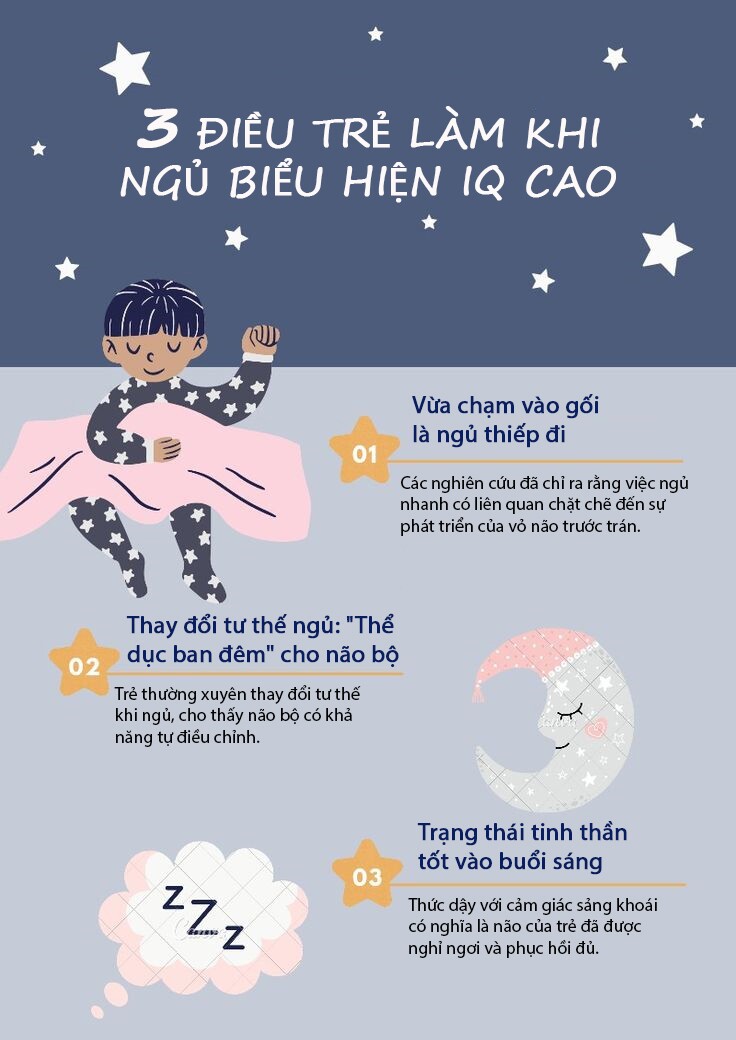It’s intriguing how something as mundane as sleep habits can offer insights into a child’s intellectual prowess. Research has revealed a strong correlation between sleep and cognitive development.


Falling Asleep Instantly: A Sign of Self-Regulation
Children who fall asleep quickly tend to have excellent self-regulation skills.
Research has linked quick sleep onset with the development of the prefrontal cortex. The prefrontal cortex acts as the “commander” of the brain, responsible for regulating emotions, controlling impulses, and making decisions.
When this area is well-developed, children are better able to manage their physical and mental states, leading to quicker sleep onset.

A study published in the journal “Sleep Medicine Reviews” found a positive correlation between falling asleep quickly and children’s executive function. Executive function is crucial for higher-order cognitive abilities and includes working memory, cognitive flexibility, and inhibitory control. These abilities are hallmark signs of high intelligence.
Falling asleep quickly also reflects a child’s ability to regulate stress effectively. In today’s fast-paced world, children often face academic, social, and other pressures. Thus, quick sleep onset suggests a child’s ability to cope with stress, an essential skill for cognitive development.

Changing Sleep Positions: Nocturnal Brain Gymnastics
While it may seem unusual, children who frequently change sleep positions exhibit self-regulation and brain adaptability.
These sleep position changes are closely linked to the brain’s ability to adapt. Neuroplasticity, the brain’s ability to reorganize neural connections based on experiences, is enhanced when sleep positions vary. This promotes faster learning and cognitive development.
A study published in the journal “Frontiers in Neuroscience” found that changing sleep positions can improve blood flow to different brain regions and enhance neural connectivity. This nocturnal “brain gymnastics” helps consolidate the day’s learning and improves memory retention.
Additionally, varying sleep positions prevent sleep-related disorders. Maintaining one position can lead to poor local blood circulation, affecting sleep quality. Thus, moderate changes in sleep positions promote overall blood circulation, ensuring adequate oxygen and nutrient supply to the brain.

Children who change sleep positions exhibit self-regulation and brain adaptability.

Morning Mood: A Sleep Quality Indicator
A child’s mood upon waking is a crucial indicator of sleep quality.
Waking up feeling refreshed suggests that the child’s brain has adequately rested and recovered. This efficient “recharging” process reflects the optimization of neural networks in the brain.
High-quality sleep promotes brain pruning and reorganization
This process is akin to organizing computer files, removing redundant information, and optimizing storage structures. Following this “brain organization,” the brain functions more efficiently, resulting in a child feeling refreshed upon waking.
A positive morning mood is also associated with a balance of neurotransmitters in the brain. Quality sleep regulates the release of neurotransmitters like dopamine and serotonin, influencing both emotions and cognitive processes. Balanced neurotransmission is essential for maintaining optimal cognitive function.

High-quality sleep promotes brain pruning and reorganization.
Every child is unique, and so are their sleep habits
Parents should pay attention not only to the duration of their child’s sleep but also to these subtle indicators. Recognizing signs such as eye rubbing, yawning, or irritability is crucial, as they signal the child’s need for rest. Ignoring these cues can lead to discomfort and potential psychological and emotional issues.
In today’s hectic world, create a soothing sleep environment for your child: warm lighting, comfortable temperatures, a quiet space, and a beloved companion, such as a stuffed toy or a favorite pillow.
Each night of restful sleep is a precious opportunity for cognitive development, and each morning is a fresh start for your child to explore the world. Sleep helps children recharge their energy, consolidate memories, and enhance their thinking skills.
In fact, while your child sleeps, their brain actively processes and organizes information, forming essential connections for cognitive development. This is the brain’s most active period for memory consolidation and creativity.
Engage in relaxing bedtime routines, such as reading or light conversation, to help your child unwind and ease into sleep.







































